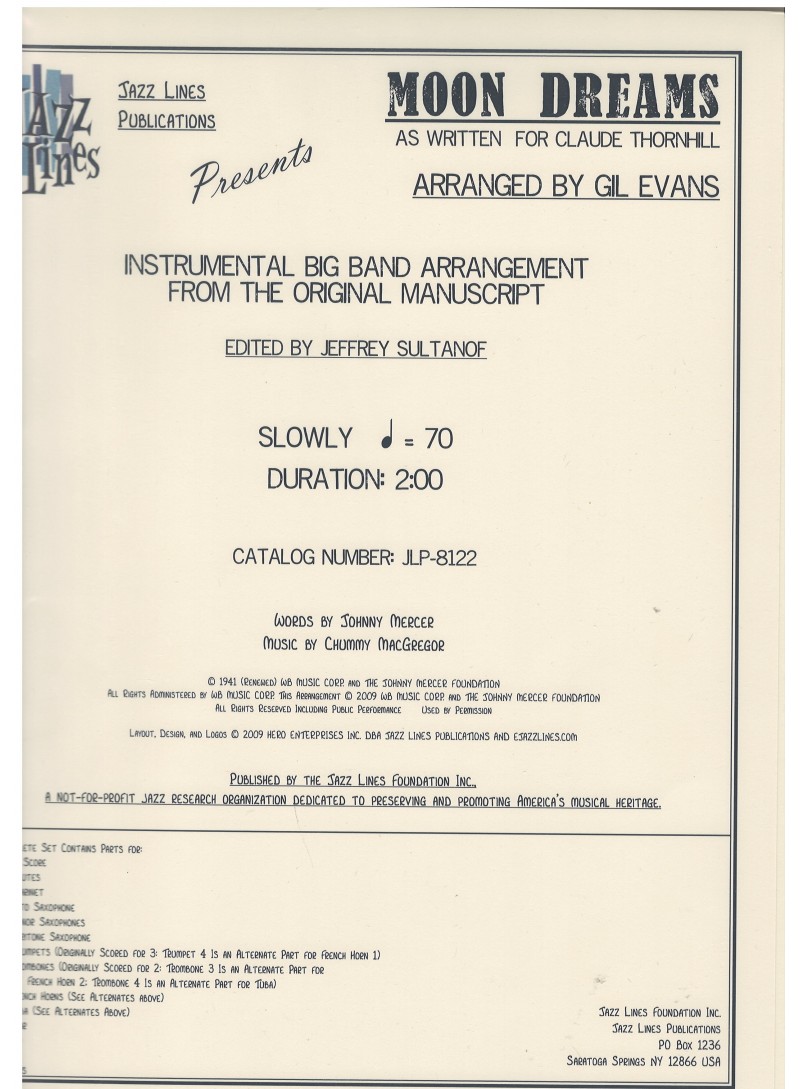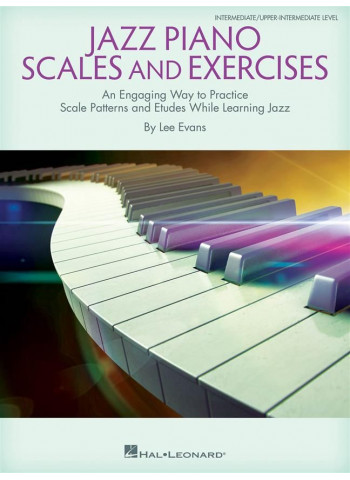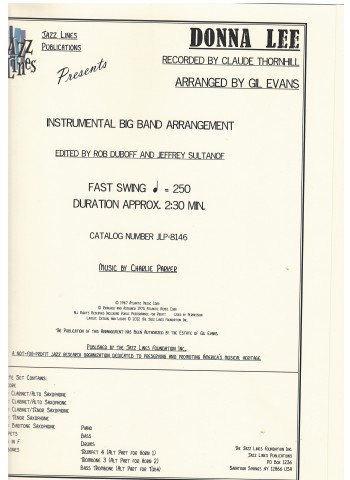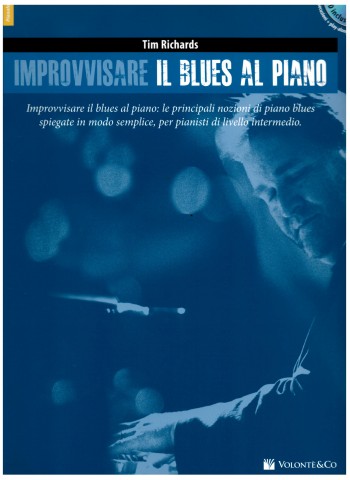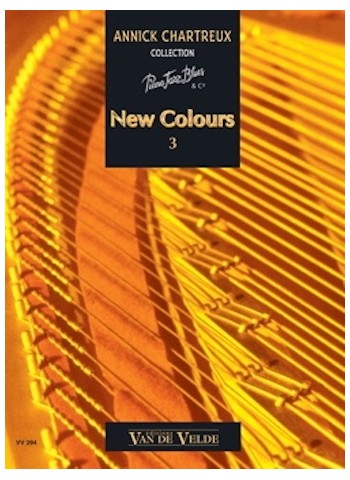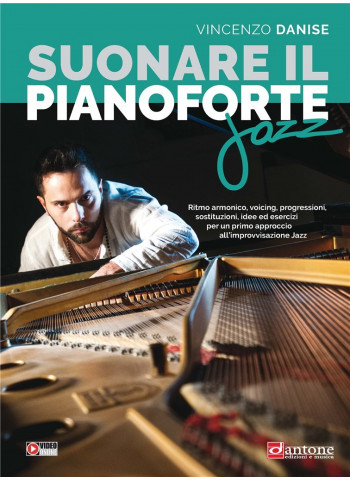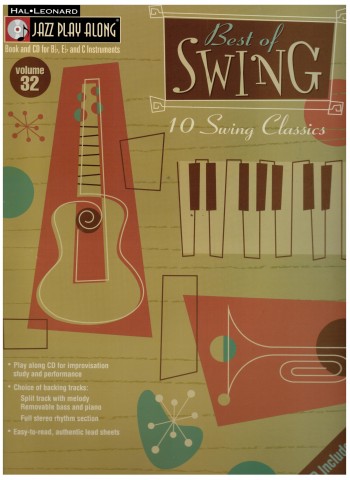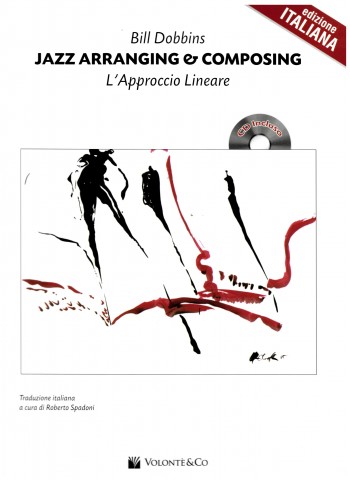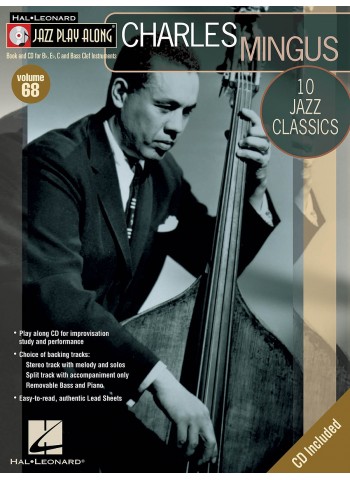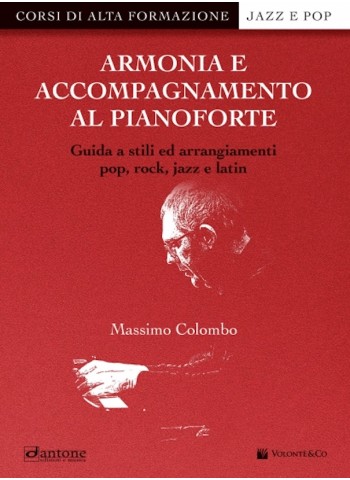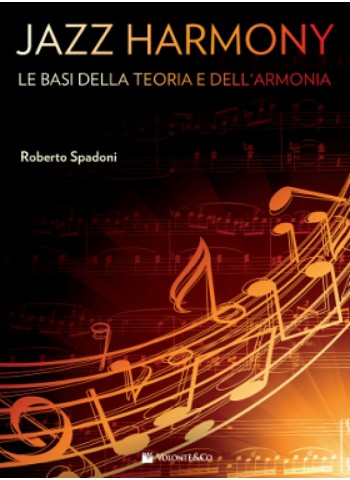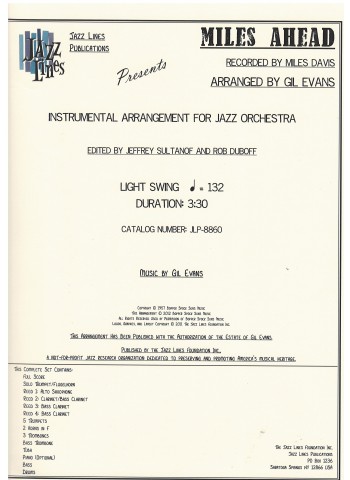Moon Dreams
- Casa editrice: Jazz Lines
- Compositore: arr. Evans, Gil
- Codice di riferimento: 20923
- Codice catalogo: JLP-8122
- ISBN: 9781574060799
Quantità:
Instrumentation for this setting is: 3 flutes, clarinet, alto sax (dbl. clarinet 2), 2 tenor saxes (1st dbl. clarinet 3, 2nd dbl. bass clarinet 1) baritone sax (dbl. bass clarinet 2), 3 trumpets, 2 French Horns, 2 trombones, tuba, guitar, piano, bass, drums).
For a brief period in mid-1947, the Thornhill Orchestra included three flutes, and this medley can be dated based on the inclusion of these instruments (the arrangement can be played without them). Evans makes the most of the flutes in this setting; they add another color and a shimmering, velvety top to the ensemble sound. At the same time, the last part of Moon Dreams has to be one of the most dissonant, complex pieces written for a dance band in the ensembles history (the only other big band composer who wrote such disturbing music during this period was Robert Graettinger for the Stan Kenton Orchestra) One wonders whether the entire medley was played in public, or simply cut at bar 40. It was not recorded.
Moon Dreams was clearly an important musical milestone for Evans. There is strong evidence to suggest that Moon Dreams was the first arrangement written for the Miles Davis Nonet (later to be called the Birth of the Cool ensemble). This is the only arrangement with a clarinet part, as Evans originally wanted Danny Polo from the Thornhill band to be included (the alto sax part is an exact transposition of the clarinet part), and Evans chose an already-written setting to set for the smaller ensemble, partly to show the other arrangers how to approach the instrumentation of the ensemble (the goal being to get the Thornhill sound with a smaller group). That he would have revisited the complex final eighteen bars of Moon Dreams says a lot for Evans continual re-thinking and revising his own work, as he would later on with different versions of Jambangle, Blues for Pablo, and La Nevada.
As has been pointed out elsewhere in notes for other Evans/Thornhill arrangements in this series, Evans wrote contrapuntally vs. chordally, considering the line first. Musicians have commented that one of the reasons they love playing his arrangements is because he writes interesting parts that cross at times (look at most trombone parts he wrote for Thornhill). At the same time, he frequently wrote a five-part harmony that was doubled an octave below, creating some striking soft dissonances. The only way to deal with these is to have your
students listen carefully as well as maintain accurate tuning. In an age where ensembles have played Brookmeyer and Schneider, this should not be too difficult.
The last eighteen bars are pure counterpoint, and should be rehearsed in groups with the same musical lines (marking up the score with different color highlighters might be useful). The groupings of five must be played evenly.
This arrangement has been published from the original autograph score and is authorized by the Estate of Gil Evans. This is not a transcription.
This is a very complex arrangement full dense, lush voicings and difficult rhythms. Gil later modified this arrangement for the Miles Davis 'Birth of the Cool' session. This arrangement was recently recorded by the Dutch Jazz Orchestra on their 2008 CD titled 'Moon Dreams: Rediscovered Music of Gil Evans and Gerry Mulligan.'

